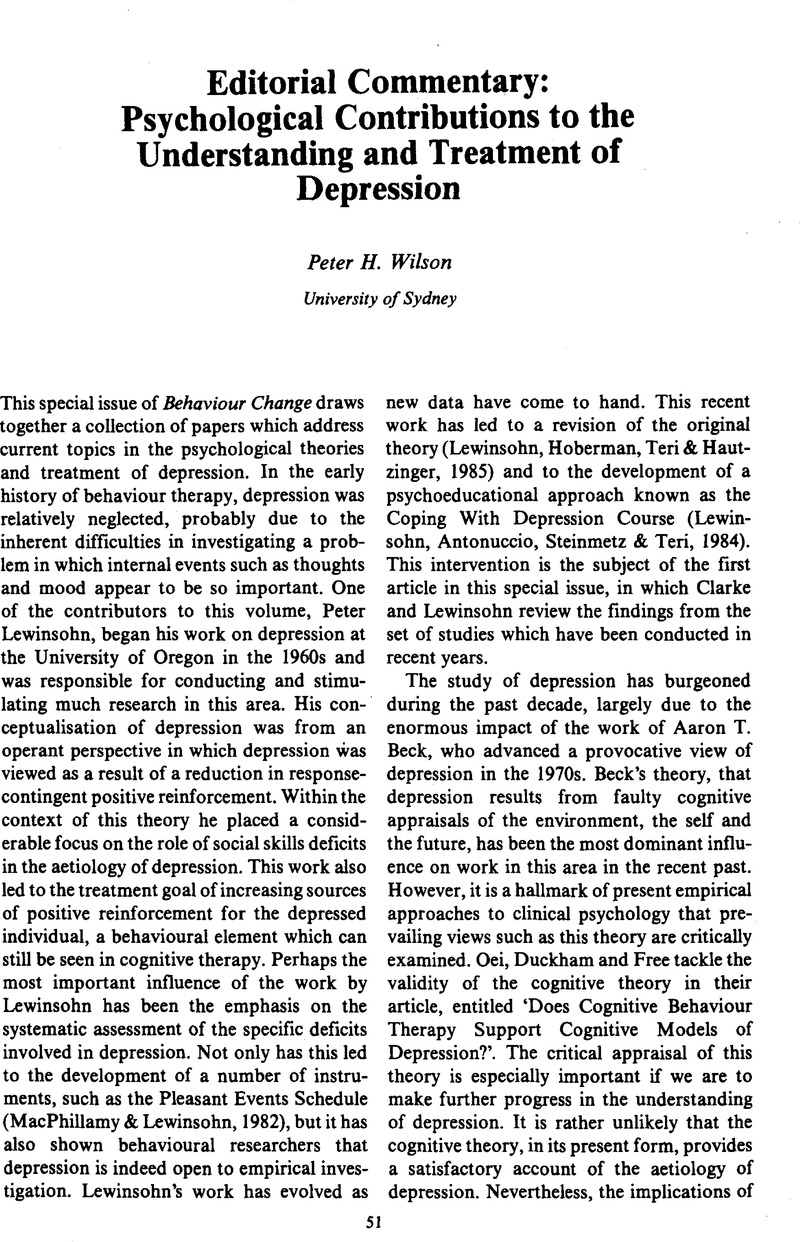No CrossRef data available.
Article contents
Editorial Commentary: Psychological Contributions to the Understanding and Treatment of Depression
Published online by Cambridge University Press: 06 October 2014
Abstract
An abstract is not available for this content so a preview has been provided. Please use the Get access link above for information on how to access this content.

- Type
- Other
- Information
- Copyright
- Copyright © The Author(s) 1989
References
REFERENCES
Craighead, W.E. (1980). Away from a unitary model of depression. Behavior Therapy, 11, 122–128.CrossRefGoogle Scholar
Lewinsohn, P.M., Antonnucio, D.O., Steinmetz, J.L. & Teri, L. (1984). The Coping With Depression Course: A Psychoeducational intervention for unipolar depression. Eugene, OR: Castalia Publishing.Google Scholar
Lewinsohn, P.M., Hoberman, H., Teri, L. & Hautzinger, M. (1985). An integrative theory of depression. In Reiss, S. & Bootzin, R.R. (Eds.), Theoretical issues in behavior therapy. New York: Academic Press.Google Scholar
MacPhillamy, D. & Lewinsohn, P.M. (1982). The Pleasant Events Schedule: Studies on reliability, validity, and scale intercorrelation. Journal of Consulting and Clinical Psychology, 50, 363–380.Google Scholar
Staats, A.W. & Heiby, E.M. (1985). Paradigmatic behaviourism's theory of depression: Unified, explanatory and heuristic. In Reiss, S. & Bootzin, R. (Eds.), Theoretical issues in behavior therapy. New York: Academic Press.Google Scholar


